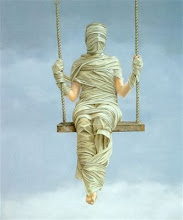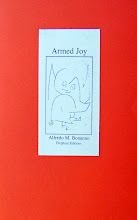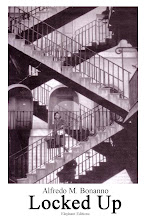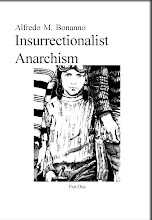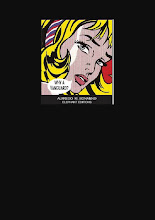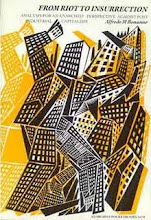From 'Armed Struggle in Italy 1976-78' Elephant Editions
The general conditions of life in this country are particularly desperate. A tightly knit campaign of collaboration with the governmental forces is allowing the media to continue to present a tolerable picture. Any sign of insufferance in the mass is immediately circumscribed with the greatest attention. The refusal of workers in Turin to strike in answer to the killing of a journalist unleashed a sea of interpretations and inquests. Famous sociologists met to provide the analyses that the State in its most brutally coercive forms (police, judiciary, prisons) needs. At the same time they are fabricating such palliatives as the law on unemployment, the rent laws, the tax reforms - all ludicrous attempts to stop an avalanche with a piece of paper.
Unemployment is on the increase, private investment is diminishing (the capitalists prefer to put their money safely abroad), the work situation must be remedied with the least damage to the State, by having recourse to the public deficit. This upsets our situation at the level of international economic credibility, which we are obliged to substitute with political credibility. In other words, if we want German and American money we must show them our disposition to repress any form of revolutionary dissent that might develop in our country. We must demonstrate that these forms will no longer exist once things have been organised definitively, with the farthings of the imperialist giants and the consent of the Communist Party.
This party’s reactionary guarantee is necessary for various reasons. First of all, its ideological past, the capacity to confuse the exploited, the progressive veneer, are none other than a simple attempt at a “calm” passage to a social democratic capitalism with wide State participation.
This guarantee would have been impossible in a different international perspective, with the USSR in more real contrast with the interests of the United States. An Italian or European road to socialism is absurd. The Italian Communist Party are available for discussion with all the reactionary forces only because the USSR have been so disposed for some time.
All this should help us to understand how the identification of the class front can no longer pass through ideological factors, but must come about through the productive situation. The workers are open to attacking the forces of exploitation at the place of exploitation as soon as the ideological coverings which have been a barrier to their understanding for so long have broken down. This disposition becomes even clearer and more acute in a situation a, accentuated by lack of work. In the last analysis the unemployed workers are even more exploited and miserable than the employed workers.
The disposition to struggle among the exploited is not only propionate to exploitation, but also to the effectiveness of ideological instruments. The more these seem clear and transparent, the more they become great crusades against nothing, and exploitation remains intact. The weaker they are, the less capable they are of “guiding” the masses, who find the road of the struggle, of class cohesion and the objectives of the conflict themselves.
The level of conflict
This can be defined as the whole of the conditions that characterise the class conflict. To know these conditions is very important, because one is often carried, for different reasons, to consider some more important than others, with the obvious conclusion that those who do not accept the same ones come to be defined counter-revolutionary.
It is not possible to fix a scale of merit concerning the conditions that determine the level of the struggle. It would in fact be out of place to overestimate economic conditions, underestimating, for example, ideological conditions which, precisely because they are breaking down, produce certain consequences and not others.
Heightening the level of conflict
Every historical moment has its own level of conflict. In a certain sense, history is history in that it manages to trace these levels and give accounts of the conditions which caused them.
Changes in the level of conflict are normal events which often come in “waves” which move around an axis which seems to remain stable even during continual change. This something is the ideological structure of power or, if we prefer, ideological structure itself, in that revolution does not have an ideological structure until it takes the concrete form of counter-revolution.
To move the conflict to the fictitious level of ideology often means to lose the concrete ground of the struggle, the only ground on which any theoretical consideration is valid.
There being no doubt that revolutionaries have every interest in raising the level of consciousness, it remains equally beyond doubt that there can be no interest in reaching ideological perfection, as this would, sooner or later, become functional only to the re-establishment of power. In the specific case of the ideology of violence that is being discussed in Italy today, this becomes functional to the State, consenting the oscillations which allow the latter to become paternalistically open to discussion (see the Bologna meeting surrounded by six thousand policemen) one minute, then rigidly adopting strong means such as special prisons, police intimidation, special laws and tribunals the next.
It is not discussions about violence that raise the level of conflict, nor the debate on which type of violence is acceptable and which should be refused that pushes the exploited towards their liberation. No one can teach anything to those who have been suffering every kind of repression for centuries, on this argument. The ideological curtain falls, and the stage remains in its stark reality, that of the class struggle, with on the one hand the exploited and on the other the servants of the exploiters walking to their bosses’ heels.
When we speak of the need for violence we are certainly not doing it to convince the exploited. They know this very well themselves, and put it into effect any time they have a chance to do so, with all the means at their disposition. We speak of the need for violence in order to point to the enemy with greater clarity, an enemy that tries to to conceal itself in even in the guise of brother or comrade.
The discussion on violence is also an element of great importance in order to recognise all those who, at the time of words, were so clever at splitting hairs, proposing models of the “right kind of violence” to the masses, based on their ideological judgments. When the level of the conflict heightens for all the reasons we have mentioned, all such discourses become both useless and determining. They are useless because the real confrontation renders them out of date and senseless; determining because they sweep away the last of the illusions and denounce barren attempts to recuperate.
As anarchists we are for the social revolution, that is we are the immediate and definitive overthrow of the State. We are for revolutionary logic, which is above all a destructive logic.
We are for the destruction of the State, which means we are for the physical (not verbal) destruction of the institutions and people who represent and bring about the State. We are against the police, the judges, the bureaucrats, the trade union leaders, and the bosses. Not only are we against police control, bourgeois justice, techno-bureaucracy, trade unionism and capitalism; we are concretely against the people who bring about these ideological forms in everyday life, turning them into instruments of repression. And this being against must translate itself into precise actions of attack. If we are against the police, we must not let ourselves be drawn into the ideological trap of those who, in the name of a misunderstood pluralism or a retrograde enlightenment, give space and feasibility to the enemy, affirming that everyone has the right to express him or herself, therefore also the police - who when they do express themselves do so with batons. If we are against all judges and bureaucrats, all bosses and the trade unions in their service, we must not wait for someone to tell us: “this boss committed a particular wrong or this trade union leader is guilty. of such and such, this judge is particularly reactionary”. No! All of them, without ideological distinction, all the police, all magistrates, all bureaucrats and all the trades union leaders, all the bosses and all those in their service are guilty and should be attacked with any possible means, at any moment, at whatever the cost.
The moral justification is to be found in the fact of exploitation itself. Anyone who has been subjected to centuries of the monstrous pressure of work, anyone who has participated in building the world knowing that he or she would never be able to enjoy any of it, does not need to wait for a particular sign of wickedness from the other side. He or she is authorised to attack, to strike, and to kill, just as the bosses and their servants attack, strike and kill at any time they like.
The problem of strategy
The fact that it is possible to discuss the methods and the best forms in which to conduct this attack, is a problem that has nothing to do with the moral foundation that justifies the attack itself.
Any such discussion must therefore become a discussion on strategy, on the evaluation of means and the achieving of ends. It cannot be said for example that “anarchists do not do certain things because...”. This argument does not make sense. What anarchists do as such must be evaluated in reality, not in the abstraction of theory, otherwise anarchism would not make sense, and become a mystifying ideology like any other.
Certainly strategic choices are not separate from the fundamental anarchist analysis, which when it is placed in reality becomes an indispensable part of revolutionary intervention. But if this same analysis were to be cut off from the reality of the struggle and become the product of some illuminated mind and transformed into a militants’ catechism, it would simply enter the field of ideology and become functional to the power it was pretending to attack.
That is why, when anarchists criticise and attack the claimed revolutionary role of the armed military parties such as the Red Brigades, the NAP or other more recent formations, they do it starting from an anarchist analysis, but one which bears in mind the real conditions of the class conflict today in Italy. It is not an anarchist analysis planted in the vague realms of ideology, that feels obliged to give judgment on matters which it not only sees as estranged from it, but also as hostile. It is not enough to be anarchists to say what is right concerning the struggle that is in the course of development. It is necessary to be within a concrete perspective to be available for the revolutionary confrontation, to have evaluated well what all that means for each one of us at a personal level, and at a global level for the whole of the anarchist movement.
We have often published the documents of the armed struggle organisations that are operating in our country. Sometimes, on these very pages, we have also traced the essential lines of a critique of the closed military party. But we have not, when these comrades were persecuted and chased away, claimed to measure the distance separating them from us. This is because the distance, without doubt present and significant, could only have been put down on paper, therefore resulted in a banal ideological question. This has led to some misunderstanding by other comrades concerning our position, fuelling an artificial argument that would have had no reason to exist had these comrades considered it more expedient to engage themselves in first person in underlining these differences which they only identified at an ideological level.
Now however things have changed, and the time has come to raise our voices loud and strong, so that even the deaf can hear us and those who pretend to be deaf see themselves shown up in front of the serious comrades who really want to struggle for the liberation of all the exploited and for anarchy.
The reason we have given space to the phenomenon of armed struggle over the past few years and supported the need to defend these points however contradictory and dangerous they might be, was because we felt the road undertaken was an important one. We felt that this road could - which in fact has happened - take another direction, that of mass armed struggle, of generalised illegal behaviour which could deny and finally eliminate the very conditions of the initial clandestine struggle based on the closed military party. To put ourselves against this behaviour from the very beginning, as so many have done, would have been a contribution to the State repression against them, and would have prevented any development in a libertarian direction, something we considered possible from the start. By this we do not mean a libertarian development in the closed military parties, but the development of armed struggle in general and of all the comrades who work in this direction.
Disillusionment is pushing many people to a practice of generalised illegal behaviour. This behaviour materialises either at the workplace, or in the field of unemployment and criminalisation. This phenomenon goes far beyond the strategic perspectives of any closed military party, no matter how big and effective it might be. The Red Brigades, the NAP, Prima Linea, and many other organisations, have nothing left to say apart from their own self criticism. Either they integrate their actions within the plan of generalised armed conflict, which is happening slowly, or they will be destined to extinction.
Our task is also this. Just as we contributed to checking the stupid and malevolant criticisms and to avoiding the global repressive tactic hoped for by the State, today, as anarchists we must continue to give our contribution to the clarification of this process of generalised armed conflict, singling out, criticising and attacking any attempt - no matter where it comes from - to impose strategic and political models which the daily practice of struggle have declared out of date.
Insurrection
It is within the perspective of generalised mass armed struggle that the insurrection takes on a libertarian meaning, and marks the definitive critique of any ‘closed’ attempt to organise the management of the class conflict.
Generalised armed conflict is the natural outcome of a situation that is getting worse every day. The exploited are beginning to point out this necessity in a series of anti-institutional actions that are continually spreading. The isolated acts of punishment carried out by minority clandestine groups against some of those responsible for exploitation are coming to be accepted with satisfaction and approved by the mass. Attempts by the unions to organise protest strikes against such actions have had, at the FIAT for example, a very small number of participants.
There is no doubt that today the movement of the exploited, in its various forms and all its contradictions, is capable of attacking capital and the State structures that defend it. There is no doubt that this attack is actually happening. The only thing that seems strange to us is that at this point in the struggle, steps backward are being made, shown in the persistence in using instruments (such as the armed party) that although they may have been effective in some way yesterday, are now anachronistic and threaten to become inward looking.
As anarchist revolutionaries we know very well that in this phase of class confrontation clandestine forms of resistance are still necessary. We know just as well that at the same time this presents negative aspects, that is, they risk becoming authoritarian.
It is our task to be careful in order to stop this involution, to fight so that the confrontation becomes generalised in its insurrectional form which guarantees it not only as anarchist strategy, but also as a libertarian perspective.
When speaking of insurrection in the past, many comrades immediately brought out historical examples: the Matese gang, the Pontelungo conspiracy, and other such events, accusing us of “revolutionary romanticism” or of being “idealists”, or of being “objectively dangerous”. To us this all seems ridiculous.
Insurrection is the attempt made with revolution sight. As anarchists, insurrection remains our privileged element, but this insurrection must be generalised, at least to the level of the widest possible practice of illegal behaviour. This is what is actually happening. What should we be feeling sorry about? Maybe we should complain about the fact that the contradictions of capital and the revolutionary claims of the exploited are preventing us from carrying on our sweet dreams?
Let us take heart. If hard times are ahead of us we know how we shall face them. It is precisely in these times that the sheep discard their wolves’ clothing.The time has come to put the chatter aside, and to fight. Let us take courage and go ahead. And then, because as always the best form of defence is attack, let us begin by attacking first. There is no lack of objectives. May the bosses and their servants feel how hard it can become to carry on their jobs as exploiters.
Anarchismo
ON THE PROBLEM OF ARMED STRUGGLE
An important element that has emerged repeatedly in anarchists’ analyses of armed struggle has been the following: as armed struggle is the culminating moment of the revolution, before engaging in it we must be sure that the phase we are passing through is at least a pre-revolutionary one. In the case of the contrary we would end up being crushed by repression and everything else, and the political work that that the movement has always carried out, such as counter-information and propaganda, would be destroyed.
We feel it is important to clarify this position, underlining a number of points:
a) analyses are based on the personal positions of the comrades who work them out, and this could be otherwise;
b) even if it does not appear officially, the positions of the organisations these comrades belong to affect the analyses themselves;
b) there is a logical error in stating that armed struggle must await the pre-revolutionary phase, as it also plays a part in the creation of that phase;
d) there can be no one single definition of what the pre-revolutionary phase is.
...The first two points should be borne in mind in view of the fact that many of the analyses being put forward today are those of older comrades whose political awareness comes from another stage in the class struggle. Younger comrades, whose daily lives are often more anti-authoritarian than those of the ones writing the analyses, often refuse to do this kind of work, or find that they lack the instruments to do so due to the liberalisation of schooling. The analyses put forward by these comrades is therefore their actions themselves, and their behaviour has put many organisational structures in crisis.
It is no longer fashionable to speak in the name of an organisation, but this does not mean that analyses reflect the ideas of the individual comrade that wrote them. They can reflect the strategic positions of organisations that these comrades constantly refer to either in theory or in practice. The longer the organisation procrastinates, the further off the “pre-revolutionary phase” will be.
We come to the third point: the statement that armed struggle necessitates a pre-revolutionary phase contains a logical contradiction. Implicit in this statement is an over-evaluation of the military-type organisation compared with other forms of armed intervention against repression. Given the level of the conflict at the present time, it is in the interests of repression to restrict the spreading of armed actions, and at the same time be able to point at a specific organisation as representing the phenomenon in its entirety. This can then be used at a spectacular level in order to justify repression.
In substance there is no reason to accept this interpretation elaborated by the political police. The actions of the so-called historic armed organizations are only a minimal part of the phenomenon of armed struggle, even if they manage to be the most spectacular action. In reality this phenomenon consists of a vast arc of illegal and anti-authoritarian behaviour which is threatening to spread uncontrollably. The State knows this very well, as do the political and pseudo-revolutionary (but substantially counter-revolutionary) groups that are trying to jump on the band-wagon. To reduce the problem of armed struggle in Italy today to what is being done by groups such as the Red Brigades, would be absurd. That would be to repeat, using all the weight of revolutionary analysis, the schemes of reasoning that are so useful to capitalism. It is this anti-authoritarian illegal behaviour that signals what is defined the pre-revolutionary phase rather than, as some maintain, that it is this phase that renders such behaviour rational.
Something should also be said concerning the problem that a single definition of the pre-revolutionary phase is not possible. Some comrades imagine that it must always resemble the conditions of the storming of the Winter Palace, and anything other than that must only spring from a worsening crisis in capitalism’s management of the economy. Others think that first an imbalance must develop at international level, or there must be a change in interests in the areas into which the world is divided. These points are all valid, but taken individually they cannot put in doubt the fact that our revolutionary task is that of pushing the exploited towards rebellion and the struggle against the exploiters, not to daydream about the possibility of the victory of our organisations in the case of conflict. Possibly it has not yet been understood where the revolutionary task of anarchists should lie. How is it that some still think in terms of the name, the organisation, whereby Azione Rivoluzionaria, by the mere fact of having put a beautiful phrase of Durruti at the beginning of their most significant document, should consider themselves to be the only possible alternative to the Red Brigades? Perhaps it has not been understood that the only alternative is that of generalised armed struggle pushed to an insurrectional level, something far more meaningful than the greatest feats of the historic organisations.
FORWARD COMRADES!
Revolt is a fact that concerns individuals and organisations. It is not the revolution, but is what makes the revolution possible. Without the continual revolt of conscious individuals there will be nothing but the betraying revolution of the neo-bosses using the organs of the class struggle. And revolt is consciousness of oneself, one’s own involvement, the sacrifices we must be capable of making the hopes, the joys, the advances and the possible dangers. Revolt is what characterises the life of each one of us.
It is in moments of great social tension, when the contradictions of the capitalist structure explode, that the consequences of the little compromises and weaknesses we ended up accepting in the period when nothing was happening emerge. It is opportunism that has forged its path among us, opportunism that finds cunning words to disguise itself, to smuggle its way in as a refined revolutionary tactic.
Forward comrades! Let us begin to call on what is inside us, in our relationships with the comrades closest to us, in our relationship with the organisations that we belong to.
It is not so difficult. The enemy facing us is doing so with such harshness that he is not difficult to identify, and if we identify him we must strike, and if we strike we must be ready to pay the consequences of our actions. These are the tasks awaiting us.
May our discourses be action, and may other comrades learn to esteem us for what we do and not what we represent as a tradition, and may the State learn to fear anarchists once again, not as inheritors of Ravachol or Henry, Durruti or Makhno, but because they are capable of giving life to organisations of attack, and are not just groups of social scientists who produce brilliant analyses on the problems of the moment.
Today we have some possibilities in the front line of the revolutionary conflict. We have not made any serious mistakes in the recent past to put us in a bad light in the eyes of the exploited
Perhaps this is because what we have done has been too insignificant to have left any room for serious mistakes, but all the same we have not made any. At the present time we can still be a point of reference a point of coagulation both for the exploited and for many militant revolutionaries who come from authoritarian organisations and have lived through the great trauma of the errors of these organizations. We will not repeat the mistakes we made in 1968. We do not accept confrontation on the abstract basis of endless theoretical discussions. We are measuring ourselves in the concrete field of action.
We are not demonstrating the fear that usually leads us to close in on ourselves because with the authoritarians, the Marxists, there is nothing that can be done. The past few months have shown the development of a strong anti-authoritarian consciousness in many groups of militants, as well as in some strata of the exploited, particularly those subjected to processes of criminalisation: we are not contributing to extinguishing this consciousness.
Let us prepare for every possible relationship
confrontation on an abstract basis of endless theoretical discussions. We are measuring ourselves in the concrete field of action.
We are not showing the fear that usually leads us to close in on ourselves because with the authoritarians, the marxists, there is nothing that can be done. The past few months have shown the development of a strong anti-authoritarian consciousness in many groups of militants, as well as in some strata of the exploited, particularly those subjected to processes of criminalisation: we are not contributing to extinguishing this consciousness.
Let us prepare for every possible relationship. We are anarchists, and as such are for anti-authoritarian action. But we believe in the need to attack power right away, at all levels and with every possible means. Here we can measure ourselves and find a possible point of collaboration.
Recent experiences which come from the level of social conflict in Italy today tell us that the authoritarian strategy is a losing one. These experiences have been points of reference not only for us, but also for many other comrades. This is not the time for theoretical debate; it is time to single out the objectives to be attacked amongst the great counter-revolutionary alliances.
“Anarchismo”
skip to main |
skip to sidebar

Some writings of Alfredo Maria Bonanno in English, or almost

Alfredo Bonanno was arrested on October 1st 2009 in Greece, accused of concourse in robbery. With him, anarchist comrade Christos Stratigopoulos.
Here are a few translations and part translations of a small portion of Alfredo's writing. This is a work in progress, many of the translations are as yet incomplete. Open links to find more of Alfredo's work.
Alfredo Bonnano Released
Nov. 22 Alfredo Bonnano was sentenced to 4 years imprisonment (which practically means that with the time served so far and the fact that he is over 70years old HE IS RELEASED
Christos Stratigopoulos (who took responsibility for the action)
was sentenced to 8 years and 9 months with the Greek law will probably be released at the end 2011
BY ANY MEANS NECESSARY
LINKS
click on any of these labels to read text
- "Community" sickness
- 1981 - Editorial
- A Critique of Syndicalist Methods
- A few notes on Sacco and Vanzetti
- A few notes on the revolutionary movement in Italy
- A little man in Singapore
- A million jobs
- A question of class
- Affinity
- After Marx autonomy
- Albania Laboratory of Subversion (Introduction)
- Anarchism and the national liberation struggle
- Anarchists and action
- AND WE WILL ALWAYS BE READY TO STORM THE HEAVENS AGAIN (Against amnesty)
- ANTI-INSTITUTIONAL MOVEMENT
- Are we modern?
- Armed Joy
- ARMED STRUGGLE. SOME REFLECTIONS.
- Autonomous base nuclei
- beyond syndicalism
- Beyond workerism
- But what is the imaginary?
- Class War
- Comiso - Organizational document of the self-managed leagues
- Considerations on illegality
- Dissonances (Introduction)
- Elephant Editions 1986
- Excluded and included
- Farewell to claiming
- Feral Revolution (Introduction)
- FICTITIOUS MOVEMENT AND REAL MOVEMENT
- For an Antiauthoritarian Insurrectionist International - Proposal for a debate
- From riot to insurrection
- From the centre to the periphery
- Good technology
- Guerilla Extraordinary
- Habits and idols
- Hegel
- I know who killed chief superintendent Luigi Calabresi
- Illegality
- Illness and capital
- Informal organisation
- Insurrection
- Internationalism
- Introduction to Sabate
- Introduction to Anarchism and Violence
- Introduction to Bratach Dubh English edition of Malatesta's Fra Contadini
- Introduction to Insurrectionalist Anarchism
- Introduction to Strange Victories
- Introduction to The Conquest of Bread
- Involuntary aspects of voluntary work
- Let's destroy work
- LET'S DESTROY WORK. New introduction
- Let's keep our feet on the ground please
- Lightening Conductors and Stand-ins - more shots of non-news
- Lightning Conductors and Stand-ins
- Lightning Conductors and Stand-ins (cont.)
- Locked up
- Looking forward to self-management
- Loss of language
- More on internationalism
- National Liberation Struggle
- nineteen years on
- No more crises
- Non-news about drugs
- Non-news about racism
- Ode to the Uniform
- On Feminism
- One's life on the line
- Order and chaos
- Otto Ruhle (Introductory Note)
- OUR ROLE IN THE PRESENT CONFLICT
- Palestine mon amour
- Pantagruel anarchist review
- Pinelli
- Prison and Prisoners’ Struggles - Introduction
- Propulsive Utopia
- Quality and the factory
- Restructuring Capital and the new democracy
- Revolution - Violence - Antiauthoritarianism
- REVOLUTIONARY VIOLENCE
- Science and the social revolution
- Self-management
- Severino Di Giovanni in Argentina 1923-1931 by Osvaldo Bayer
- Social banditry
- SOME NOTES -
- Space and Capital
- Stirner
- Stop the City? From information to attack
- Strategy and Methods
- Streamlined production
- The "end" of the crisis
- The aesthetics of anarchism
- The anarchist tension
- The area of autonomy and the anarchist movement in Italy
- The armed wing of science
- The Cruise missile base at Comiso can be prevented
- The ethical bank
- The insurrectional project
- THE LANGUAGE OF TECNICS -
- The logic of insurrection
- The moral split
- THE NECESSARY DESTRUCTION -
- The priority of practice
- The refusal of arms
- The revolutionary project
- The revolutionary struggle
- The significance of an insignificant event
- The struggle for self-managed social space
- The tyranny of weakness
- The whole and the part
- The young in a post industrial society
- Theory and action
- Towards anarchist antimilitarism
- TOWARDS THE GENERALISATION OF ARMED STRUGGLE
- TRANSFORMATION IN THE WORLD OF WORK AND SCHOOL -
- TRUTH -
- Unemployment in Italy - How come everything doesn't explode?
- Untitled
- Violence and non-violence
- What are anarchists
- What can we do with anti-fascism?
- Why a vanguard?
- Why Insurrection
- World domination in a few words

